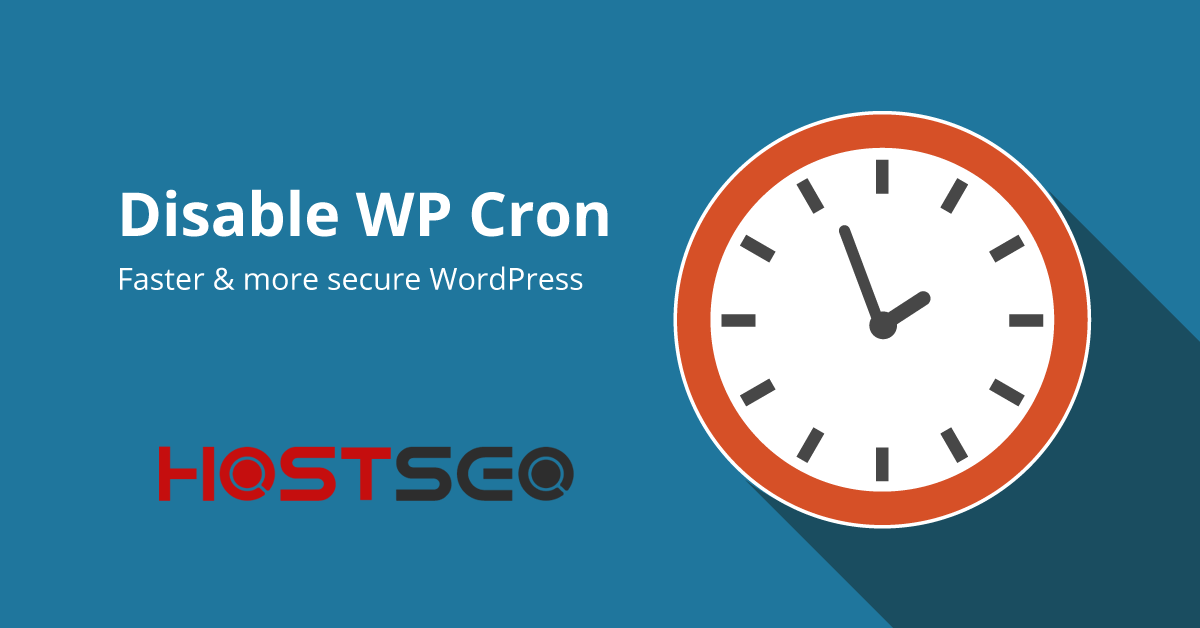How to stop wp-cron.php from firing!
- Category : WordPress
- Posted on : Apr 02, 2013
- Views : 3,493
- By : Kapueo I.

Recently, I have written an article about reducing the cpu usage for a wordpress blog. My post contains some information about the wp-cron.php, but it doesn’t explain how you can stop wp-cron.php from taking high CPU. Couple of our twitter followers and facebook clients were asking for a post describing how they can stop wp-cron.php from taking high CPU or firing up. Here are some small tricks to reduce the CPU usage from wp-cron.php.
First of all, if you have root access to your server, you can eventually block wp-cron.php using mod_security, this would prevent wp-cron.php usage throughout the web server. But you can still call it using the cronjobs. How to setup wp-cron.php manual cronjobs, can be found in my blog post “Reducing CPU Usage for WordPress blog” post.
If you are on a shared hosting or want to permanently stop this culprit, you would need to stop spawning this php file. wp-cron.php calls cron.php file which is located under your wordpress root/wp-includes/ folder. Open the file in your file manager or using FTP browser and find the line stating:
spawn_cron( $local_time );
Now comment this line and you should stop wp-cron.php spawning everytime an user enters your site. You can comment it with two slashes as following:
// spawn_cron( $local_time );
You have to keep in mind, this would stop all sort of scheduled event as well.
I could discover another alternative that would stop wp-cron.php from running using http request, but would work fine using cronjobs. Open cron.php and find the following line:
if ( strpos($_SERVER['REQUEST_URI'], ‘/wp-cron.php’) !== false || ( defined(‘DISABLE_WP_CRON’) && DISABLE_WP_CRON ) )
Now, replace this line of code with the following:
if ( strpos($_SERVER['REQUEST_URI'], ‘/wp-cron.php’) === false || ( defined(‘DISABLE_WP_CRON’) && DISABLE_WP_CRON ) )
Make sure the immediate next line “return” must remain in the immediate line.
You can also put the following in your wp-config.php file to set DISABLE_WP_CRON global variable to TRUE:
define('DISABLE_WP_CRON', true);
At last, you should make sure wp-cron.php runs using cronjobs for your scheduled events, but if you don’t have scheduled events, then you better stay away from adding it in cronjobs as well. But if you do, then have a look at my previous post for setting up the manual cronjobs of wp-cron.php using cpanel.
Any of the above solution should prevent your wp-cron.php from firing and taking high CPU. Happy blogging :)
Categories
- cPanel Question 47
- cPanel Software Management 29
- cPanel Tutorials 13
- Development 29
- Domain 13
- General 19
- Linux Helpline (Easy Guide) 156
- Marketing 47
- MySQL Question 13
- News 2
- PHP Configuration 14
- SEO 4
- SEO 42
- Server Administration 84
- SSL Installation 54
- Tips and Tricks 24
- VPS 3
- Web Hosting 44
- Website Security 22
- WHM questions 13
- WordPress 148
Subscribe Now
10,000 successful online businessmen like to have our content directly delivered to their inbox. Subscribe to our newsletter!Archive Calendar
| Sat | Sun | Mon | Tue | Wed | Thu | Fri |
|---|---|---|---|---|---|---|
| 1 | 2 | 3 | 4 | 5 | 6 | |
| 7 | 8 | 9 | 10 | 11 | 12 | 13 |
| 14 | 15 | 16 | 17 | 18 | 19 | 20 |
| 21 | 22 | 23 | 24 | 25 | 26 | 27 |
| 28 | ||||||
Recent Articles
-

Posted on : Sep 17
-

Posted on : Sep 10
-

Posted on : Aug 04
-

Posted on : Apr 01
Tags
- ts
- myisam
- vpn
- sql
- process
- kill
- tweak
- server load
- attack
- ddos mitigation
- Knowledge
- layer 7
- ddos
- webmail
- DMARC
- Development
- nginx
- seo vpn
- Hosting Security
- wireguard
- innodb
- exim
- smtp relay
- smtp
- VPS Hosting
- cpulimit
- Plesk
- Comparison
- cpu
- encryption
- WHM
- xampp
- sysstat
- optimize
- cheap vpn
- php-fpm
- mariadb
- apache
- Small Business
- Error
- Networking
- VPS
- SSD Hosting
- Link Building
- centos
- DNS
- optimization
- ubuntu







